
Geranium Pelargonium hybrid
Pansy Viola x wittrockiana
Petunia Petunia hybrid
Sweet alyssum Lobularia maritima
VincaVinca minor
HOW TO DESIGN A HAYRACK PLANTER
Tera uses the same principles for hayracks that she uses in other container designs: Position trailing plants at the front to billow over the edge, place tall plants in the back row, and bridge the gap with smaller upright filler plants. Of course, your color choices are really all about personal preference, but she tries to match color temperature, meaning she wouldn't place a red-orange geranium in the mix of cool pink geraniums, petunias and blue pansies in the planter above, but she would include a fuchsiared, for example.
To get the full look you see here, you'll need a lot of plants. Each of the two 55-inch planters above holds about 50 plants. For instant gratification, start with 4-inch pots of some of the showpiece plants, such as the trailing petunias and geraniums. Fill in around them with more economical flats of vinca and sweet alyssum.
PRACTICAL CONSIDERATIONS
Any time you install a windowbox against a flat surface like siding, it's a good idea to mount it with spacers to prevent moisture from building up between the planter and the siding. A 1½/2-inch spacer block at the top and bottom of the hayrack should be enough to allow air to circulate and prevent rot.
You can find hayracks in many sizes, but as with any container, the bigger it is, the heavier it is. Add soil and plants and it'll be much tougher to mount. So it's best to mount the empty hayrack and plant it up right where it hangs.
This story is from the Issue 171 - June 2023 edition of Garden Gate.
Start your 7-day Magzter GOLD free trial to access thousands of curated premium stories, and 9,000+ magazines and newspapers.
Already a subscriber ? Sign In
This story is from the Issue 171 - June 2023 edition of Garden Gate.
Start your 7-day Magzter GOLD free trial to access thousands of curated premium stories, and 9,000+ magazines and newspapers.
Already a subscriber? Sign In
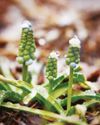
Backyard Tornado
\"HE WHO SEARCHES FOR SPRING WITH HIS KNEES IN THE MUD FINDS IT, IN ABUNDANCE.\" - ALDO LEOPOLD
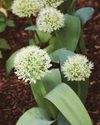
Front-of-the-Border "Wow!" Power
When it comes to easy-care plants that bring a lot of punch to the border, 'Ivory Queen' Turkestan onion should be near the top of your shopping list.
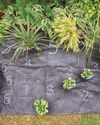
GARDEN ESSENTIALS
MAKE GARDENING EASIER THIS YEAR
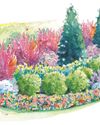
Elevate an Evergreen Hedge
Although an evergreen hedge looks suitable all year on its own, it's perfectly poised to become something even greater: a backdrop to a garden where flower after flower will unfurl with such drama, you just might find yourself stepping outside and offering your applause.

One Garden, Two Worlds
In this colorful and welcoming garden, sunny, flower-filled front borders transition to a shady backyard hideaway.
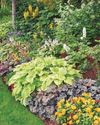
on edge
Four garden pros share their go-to edging techniques.
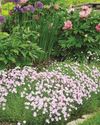
DIANTHUS
Add fragrance, vivid color and timeless charm with this reliable, cold-hardy perennial.
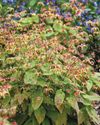
2025's Best New Plants!
Are you ready to start planning for next year's garden? A few new plants might be just what you need to bring those dreams to reality.
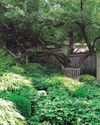
Solve Garden Problems With Ground Covers
Are you tired of coaxing turfgrass to grow in difficult spots? In her book Groundcover Revolution, Kathy Jentz says that ground covers can be the solution to these struggles.
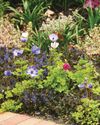
The Romance of Spring
With the arrival of spring, emerging perennials fill the garden with soft texture, restoring life to the harsh, often barren landscape of winter.